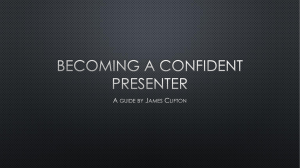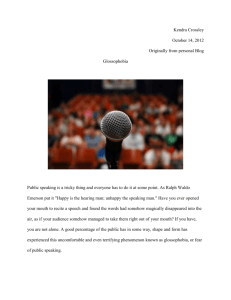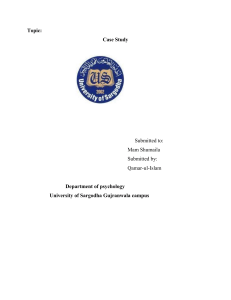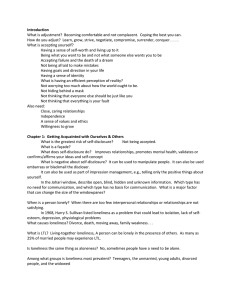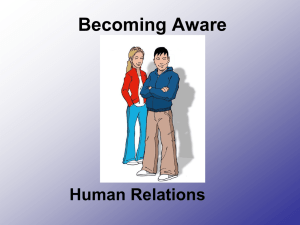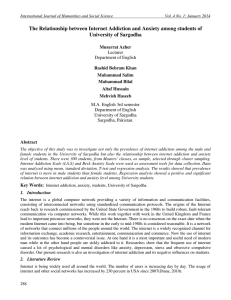The power of online recovery communities and their
advertisement
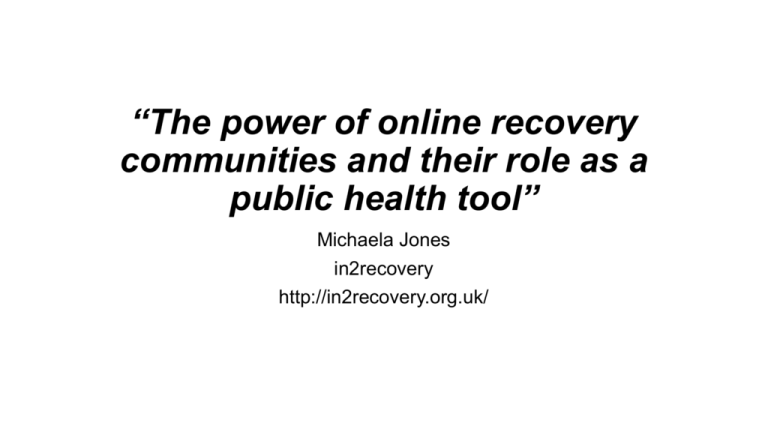
“The power of online recovery communities and their role as a public health tool” Michaela Jones in2recovery http://in2recovery.org.uk/ A part – but apart Glossophobia Glossophobia or speech anxiety is the fear of public speaking. The word glossophobia comes from the Greek glōssa, meaning tongue, and phobos, fear or dread. Many people only have this fear, while others may also have social phobia or social anxiety disorder. Symptoms: intense anxiety prior to, or simply at the thought of having to verbally communicate with any group avoidance of events which focus the group's attention on individuals in attendance physical distress, nausea or feelings of panic in such circumstances The fear of speaking in public is thought to affect as many as three out of every four people, and as such, is one of the most common phobias. Surveys and research results show that most people rather die instead of talking in front of a live audience. Global Fears Top Ten 1. Fear of public speaking (Glossophobia) 2. Fear of death (Necrophobia) 3. Fear of spiders (Arachnophobia) 4. Fear of darkness (Achluophobia, Scotophobia or Myctophobia) 5. Fear of heights (Acrophobia) 6. Fear of people or social situations (Sociophobia) 7. Fear of flying (Aerophobia) 8. Fear of open spaces (Agoraphobia) 9. Fear of thunder and lightning (Brontophobia) 10. Fear of confined spaces (Claustrophobia) “Although it makes intuitive sense that social anxiety could present a challenge in addiction treatment settings, which often involve small groups and encouragement to participate in self-help groups like Alcoholics Anonymous (AA) and Narcotics Anonymous (NA), to our knowledge no study has yet assessed the impact of shyness on the treatment experience. Controlling for depression and worry, social anxiety was a unique predictor of endorsement that shyness interfered with willingness to talk to a therapist, speak up in group therapy, attend AA/NA, and ask somebody to be a sponsor. Socially anxious substance abusers were 4-8 times more likely to endorse that shyness interfered with addiction treatment activities. These findings have clinical and research implications.” Book SW, Thomas SE, Dempsey JP, Randall PK, Randall CL 2009 childcar e culture knowledge gap anonymity LACK OF CHOICE I can’t, but WE can! It is clear that recovery is related to connectivity If active addiction is about isolation then recovery is about community Recovery is contagious, we have to create opportunities for people to catch it Mutual Aid/Recovery communities provide support both for people in active addiction and those in active recovery! Mutual Aid/Recovery communities provide an alternative source of recovery knowledge emerging from shared experience Recovery communities revitalise real communities A personal testimony….
